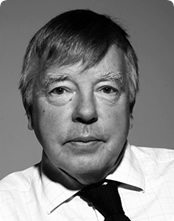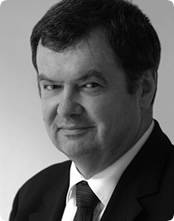
 A TIME AND A PLACE
FOR EVERYTHING
A TIME AND A PLACE
FOR EVERYTHING
Synopsis:
The adjectives, “smart” and ‘intelligent” are applied
to office buildings and sometimes even to entire
cities. Clever building systems are automated to
respond to external factors such as climate or to
internal factors such as patterns of use. It is the
responsibility of owners and users to make sure
that they are smarter than their buildings and use
them purposefully to further their own and society’s
interests. Frank Duffy will be joining us by video conference to discuss technological innovations affect the
environmental performance of buildings,
lessons include:
-
It is far more ecologically sound to
work with nature than against it
-
Technology develops rapidly but not
always in a benign direction
-
Energy resources are by no means unlimited
-
More intelligent design and technological
solutions can be invented
-
However, the successful adoption of such
technological solutions depends upon user
education and behavioural change and
-
Not all contextual, political, economic, social and
technological developments can be anticipated
Frank Duffy will present research and his
experiences in covering:
-
Intelligent Buildings and Smart Cities
-
Information Technology and Intelligent Buildings
-
Facilities Management and the Development of
the Internet
-
Redesigning the Relationship between Supply
and Demand
-
Connecting Buildings and Their Use
Frank Duffy CBE is a British architect, a founder of
DEGW, the international architectural and design
practice best known for office design and workplace
strategy and, more recently for advanced thinking on
the programming of educational and arts facilities.
Duffy is particularly noted for his work on the
future of the office and the flexible use of space.
He was president of the RIBA from 1993-95. He
was appointed a Commander of the Order of the
British Empire in the New Year Honours 1997.
In 2004, he received the BCO (British Council of
Offices) President’s Award for Lifetime Achievement
and in 2008 was named by Facilities Magazine
as one of 25 Pioneers of Facilities Management
in the UK. He is currently on the Board of
Trustees of The Architecture Foundation.
In the 1960s, Duffy was responsible for introducing
Bürolandschaft (office landscaping) into the Englishspeaking
world. His doctoral research at Princeton
was focused on the mapping the relationship
between organisational structure and office
layouts. In the 1970s, he was one of the pioneers
who introduced North American practice in Space
Planning and Facility management into Europe.
He coined the concept of “Shell, Services, Scenery
and Sets”(or Shearing layers), the analysis of
buildings and building components in terms
of layers of longevity in order to facilitate the
accommodation of technological and organisational
change. This concept was later elaborated by
Stewart Brand in his book How Buildings Learn:
What Happens After They’re Built (Brand, 1994).
In the 1980s Duffy and his DEGW colleagues
initiated the ORBIT (Office Research: Buildings and
Information Technology) into the impact on office
design of advances in Information Technology.
This research had a substantial impact initially
on key British office projects such as Broadgate
and Stockley Park and then on office design
worldwide. More recently Duffy’s interests
have focused on the challenges that increasing
reliance on virtual communications is bringing
into urban design – asking the question...
“In an increasingly virtual world what arguments can architects and urbanists use to justify spaces & places?”
Key Takeaways
Frank Duffy will challenge
us to think in terms of:
-
Intelligent Buildings and Smart Cities
-
Information Technology and
Intelligent Buildings
-
Facilities Management and the
Development of the Internet
-
Redesigning the Relationship
Between Supply and Demand
-
Connecting Buildings and Their Use
 Moderating:
Chris Alcock
Moderating:
Chris Alcock
Principal of SpaceLogic
Chris Alcock is Principal of SpaceLogic and a leading
exponent of workplace innovation and change in
Australia and New Zealand.
Chris has a broad portfolio of current projects
focused on space, technology and process
innovation. His current projects include the
implementation of a national workplace strategy
for QBE Insurance, workplace strategies for the ACT
Government and the Victorian Department of
Primary Industries, infrastructure masterplanning
for the University of Otago, change management
for Queensland University of Technology,
masterplanning advisory services for Victoria
University of Wellington and research, workplace
and teaching and learning accommodation
strategies for Macquarie University in Sydney.